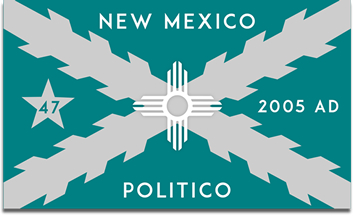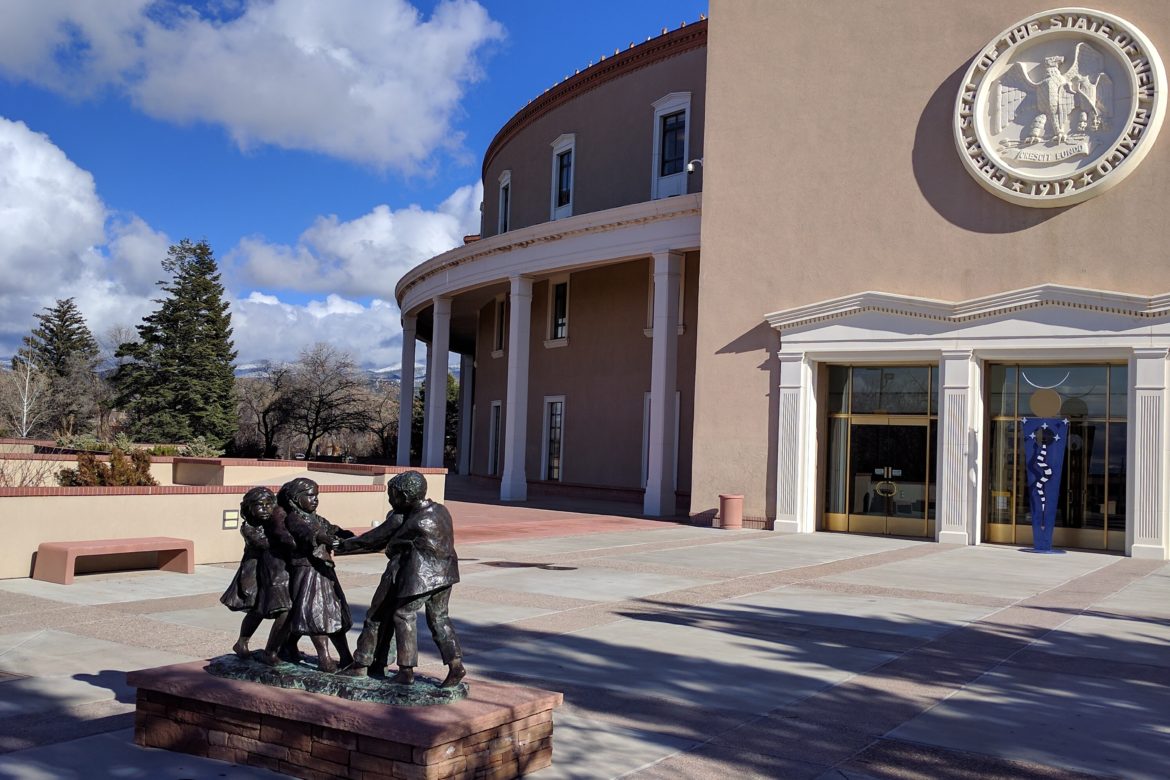Santa Fe – The 2019 legislative session kicks off Tuesday at noon and is scheduled to end after sixty days on Saturday, March 16th. The bills that make it out of both houses have until April 5th to be signed by the governor or are automatically vetoed by the so-called pocket veto.
The recent oil boom in Southeastern New Mexico has state bean counters estimating an over $1 billion increase in state revenues from last year. While some consider the legacy of Governor Martinez “a squandered opportunity”, it’s hard to argue that she largely left the state’s finances in better shape than when she first took office eight years ago.
The billion dollar budget surplus, partially created by that fiscal restraint but largely by an oil drilling renaissance in the Permian Basin, gives Governor Michelle Lujan Grisham the luxury to fund her spending agenda – including the flexibility to throw money at the constituencies that supported her in her campaign, from environmentalists to unions to early childhood education advocates (not to mention a friendly Roundhouse) – without the immediate need to address some urgent financial issues facing the state, including tax and pension reform.
On Thursday we saw the first signs of that spending agenda when the governor announced her $7.1 billion budget plan that calls for an overall increase in state government spending of about 12.7 percent from last year. The governor says she is “taking steps to put our priorities into policy,” with spending increases prioritized for the aforementioned key constituencies, not to mention a cushy 38 percent increase in spending for the Governor’s Office. To her credit her plan does call for 25 percent of state spending to be held in cash reserves, the same amount Governor Martinez supported and above the 20 percent recommended by the Legislative Finance Committee (LFC). The LFC released a budget plan yesterday that largely mirrors the governor’s plan with some differences, including not removing an annual cap on film subsidies. Both plans serve as guides for lawmakers as they craft a final budget for the new fiscal year.
As far as addressing tax reform, the governor’s and LFC’s budget plans unfortunately do not include any major changes to our broken tax system but instead only recommend minor changes around the edges. And as far as pension reform, both plans seek a minor increase in how much the state contributes to the state’s two pension funds, kicking the can down the road without addressing the fund’s financial instability.
It is underwhelming to see our state leaders take the status quo approach to governing when our state faces serious long term issues, exemplified by a recent ranking that named New Mexico “the worst state in which to raise a family.” After all, we are one of just a few states that still have not recovered the jobs lost before the last recession hit, and many economists are saying we are due for another recession soon.
Some might say her boost to education and early childhood spending is part of a bold approach to turn around our state, but those same people fail to realize that not only does our state already spend more on education than any of our neighboring states per pupil, a recent study showed that a state funded voluntary pre-K program did not show measurable, long term positive results. Perhaps a serious study of the return on investment of New Mexico’s current education spending would be a good starting point before the state’s taxpayers are on the hook for additional spending whose positive effects are unclear.
Almost 500 pieces of legislation have been filed as of today, which is higher than the last sixty day session. Clearly there is a new enthusiasm created by a new Democratic governor and the new members of the Roundhouse.
Some of the bills and other Roundhouse activity worth noting:
- Advocates for tapping into the Land Grant Permanent Fund to fund early childhood education seem better positioned for a win than ever before. With the Roundhouse in Democratic control – as well as a reduction in the traditional conservative Senate coalition made up of conservative Democrats and Republicans that has traditionally been a check on the more liberal House of Representatives – it seems those advocates might finally get their way. The Santa Fe New Mexican takes a good look at how that bipartisan conservative coalition in the Senate, led by Senator John Arthur Smith, will have a major impact on the legislation ending up on the governor’s desk.
- Those plans to tap into the Land Grant Permanent Fund are part of an expected overall increase in state spending. The combination of a budget surplus and a pledge by Lujan Grisham not to appeal a verdict that found the state had violated New Mexico students’ constitutional right to a sufficient education means that a boost in education spending is all but assured – regrettably without any thought given to how well that money has historically been spent (education spending makes up more than half of the proposed budget increase).
- Ironically while the state’s bank accounts are flush due to oil and natural gas production, the Democrat-led Legislature and New Mexico Land Commissioner Stephanie Garcia Richard are hell bent on making oil and gas drilling less attractive in New Mexico, including plans for higher royalty rates for oil and natural gas production. Additionally, the well organized and out-of-state funded environmentalist lobby is also anticipated to successfully pass an increase in renewable portfolio standards (RPS) targets, resulting in higher electricity costs for consumers.
- With Democrats controlling the Roundhouse, there is concern that tax increases are imminent in order to pay for the government spending splurges, with proposals including raising the gas tax and creating a new personal income tax bracket for high-income New Mexicans, policies that are counterproductive towards spurring the economic growth our state so desperately needs. The blue makeup of the Roundhouse is also why gun control advocates are expected to make a push for new gun legislation.
- The traditional tough-on-crime agenda seen in recent years spearheaded by Governor Martinez seems to be over, and in its place is a push for criminal justice reform.
- Along the lines of criminal justice reform is a significant push for legalizing recreational marijuana. The Albuquerque Journal recently published a five-part series about the recreational marijuana debate in New Mexico.

